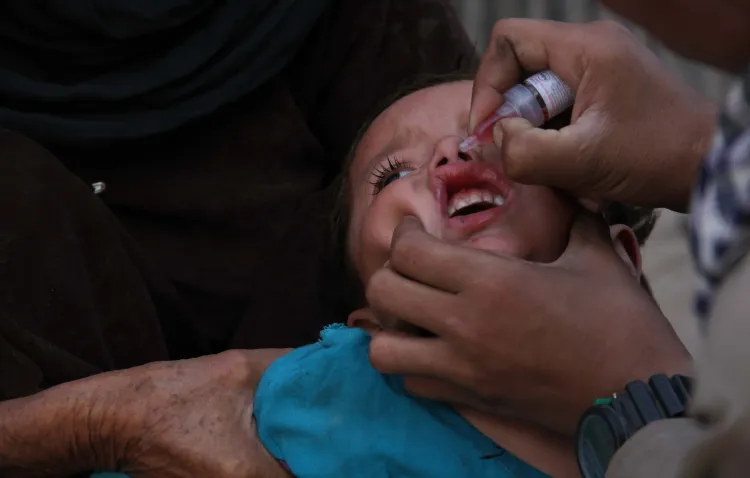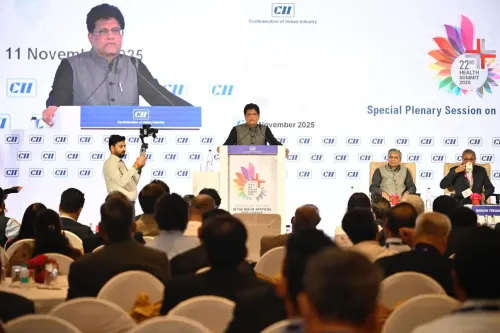Vigilance and Monitoring Essential for Polio-Free South-East Asia: WHO

Synopsis
Key Takeaways
- Surveillance is critical for detecting poliovirus.
- Health workers have been pivotal in vaccination efforts.
- The threat of poliovirus importation remains.
- Community support for immunization is essential.
- Misinformation about vaccines poses risks to future generations.
New Delhi, March 27 (NationPress) Vigilance and monitoring are crucial to ensure that the South-East Asia region stays free from polio, according to the World Health Organization, marking the 11th anniversary of its certification as polio-free on Thursday.
Poliomyelitis (polio) is a highly contagious viral illness primarily impacting children under 5 years. The highly transmissible virus can invade the nervous system, leading to paralysis.
A significant milestone was achieved on March 27, 2014, when the WHO certified the South-East Asia Region as free from all forms of wild polioviruses.
Saima Wazed, the WHO Regional Director for South-East Asia, described the eradication of polio in the region as a “daunting and uphill task” that demands relentless effort and innovative strategies.
Praising the dedication of health workers, Wazed emphasized that they “strived tirelessly to guarantee that every child received vaccinations against this debilitating disease.”
“We honor their contributions and celebrate the outcomes of their diligent work,” she added.
Notably, India successfully eradicated polio and was declared polio-free by the WHO in 2014.
However, Wazed cautioned that “the work is not over” as the risk of poliovirus reintroduction persists until polio is eradicated worldwide. She highlighted the importance of enhancing surveillance.
“Maintaining our ‘polio-free’ status significantly relies on surveillance efforts and activities, which are essential for the early detection and interruption of poliovirus spread. We must stay vigilant in surveillance and vaccination efforts to preserve the necessary capabilities at the country level,” stated the Regional Director.
She urged all countries and communities to continue supporting vaccination programs, which can strengthen our health systems. Additionally, she warned against vaccine misinformation that could jeopardize future generations.
“I recognize that there is a considerable amount of misinformation and disinformation regarding vaccines and immunization. I encourage everyone to assist in combating this by helping us spread the undeniable message that vaccines are safe and that immunization saves lives.
“We must build on our achievements together and ensure that future generations are safeguarded from the threats of polio and other vaccine-preventable diseases.
“On this anniversary of our milestone accomplishment, we reaffirm our commitment to combating all vaccine-preventable diseases and renewing our dedication to surveillance and vigilance to ensure we remain polio-free,” Wazed concluded.








